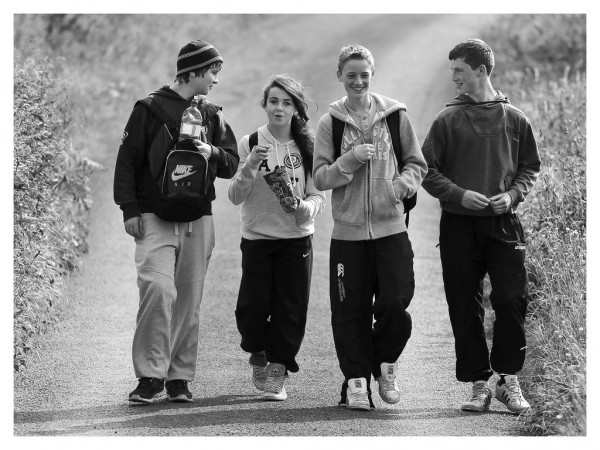Since late winter / early spring, I have been teaching the high school Sunday School class at the parish to which I am assigned. I have enjoyed it. At the same time, I have chosen to take a non-standard approach. So, we have discussed movies like: Divergent, Hunger Games, Twilight, The Hobbit, and Lord of the Rings. Why have I done that? In order to gain the opening to be heard. It has been an opportunity to discuss what it means to be an adult. Whether you realize it or not, every one of those movies deals with the subject of what it means to be a responsible adult in the world in which one lives. Of course, movies are filmed to make money. However, these are movies based on books that do use the subject of “becoming mature” as the backbone of their plot.
In every one of these movies, the young adult involved is living an unconcerned life when something happens that forces them to lift their view from themselves to the wider world. Sometimes the young adult is still in high school. Sometimes the young adult is already a legal adult, but has let life pass them by and are simply living a non-self-reflecting life. That is, they never reflect about what they are doing, whether they have a broader duty in the world, and whether they have a responsibility to their friends and acquaintances.
Teenagers want to be regarded as adults. But, we adults in USA culture do a terrible job of letting youngsters know when they have become adults. We have a multiplicity of both legal and cultural practices that seem to be almost designed to make it seriously unclear about when the transition from youth to adult happens. You can drive at one age, vote at another age, buy liquor at a third age, be able to rent a car and buy a house at another age. Is it any surprise that we have adults who behave like children until their late 20’s? We are responsible for that, not them!
But, discussing what it means to be an adult has proven to be fruitful. Attendance has stabilized, and so far I have had two parents compliment me that their son/daughter is more willing to go to class. At the same time, I find myself constantly questioning myself, since Scripture does not necessarily come up in each class. Scriptural allusions are made, but not necessarily direct Scriptural quotations. But, I have found out that in this confusing world, our young folk want to know when we will consider them to be an adult. But, am I taking the right approach? I trust so.
The situations found in the various movies are all extreme situations. But, they teach us something. They teach us that one of the main questions that our young folk have is precisely that of becoming an adult. When have they reached adulthood? How will they know? When will be start treating them as adults? The movies would not be popular if the themes they touch upon were not themes that are forefront in the minds of our young adults. How do we fit in?
So, the discussions have been fruitful. What does it mean to make difficult choices? Is being considered an adult merely a matter of age or also a matter of behavior? Does one have to rebel in order to be considered an adult, or is there a different path one can take? Those are all questions that we have discussed.
Now, saying “discussed” is misleading. Frankly, most of the time there is little talk from the teenagers, at least in class. But, as long as they are going home and telling their parents that they are learning something important, I am satisfied. And, if they think that there is a priest who understands them, then I am more than satisfied. The process of transitioning from youth to adult is difficult. But, perhaps I can have a small piece in helping that process to be successful.
I am beginning to believe that the discussions that we have in senior high school classes need to concentrate more on the transitions that are difficult for them to handle without some help. Would you believe that I am thinking of tackling dating next?




















